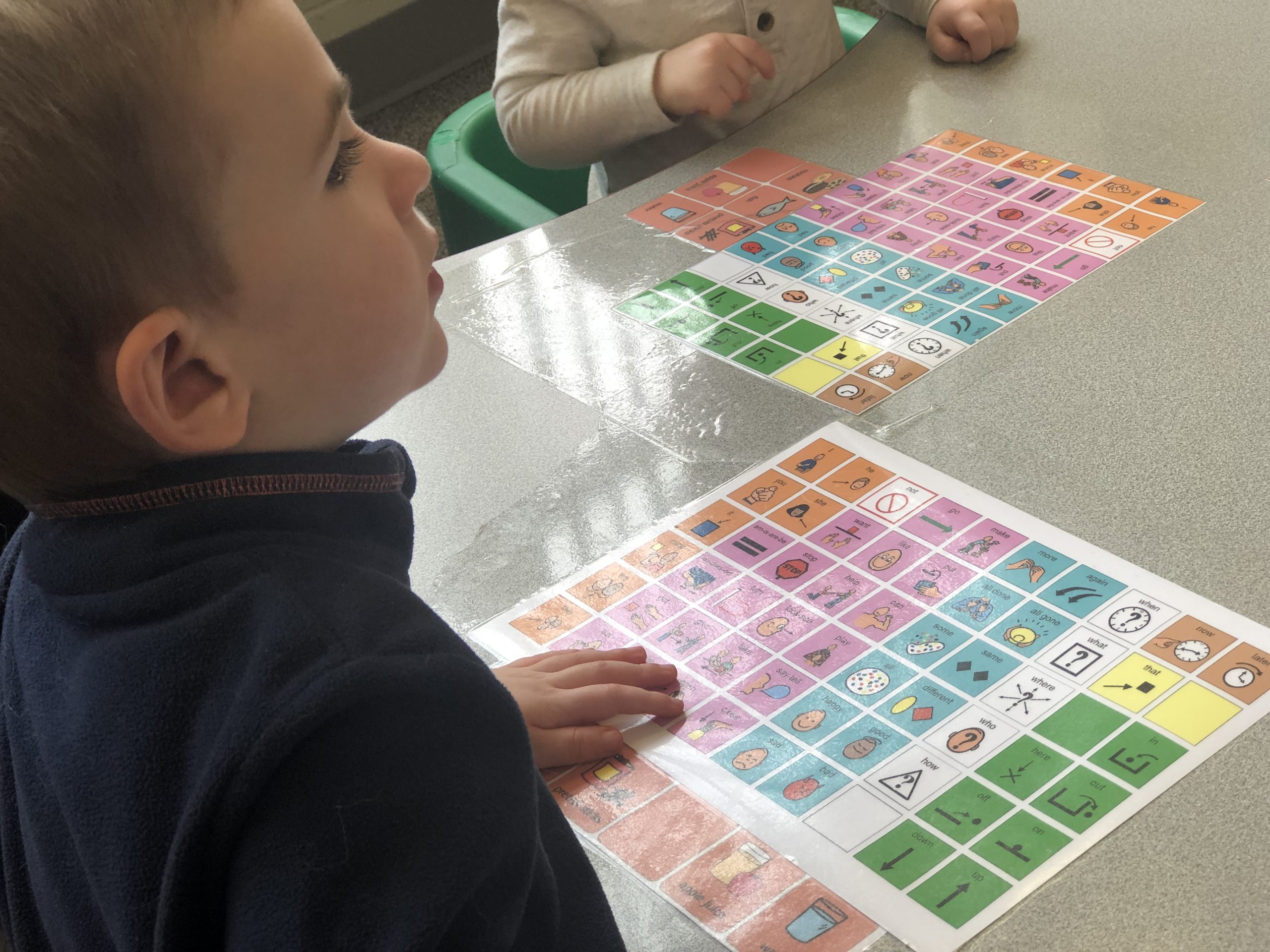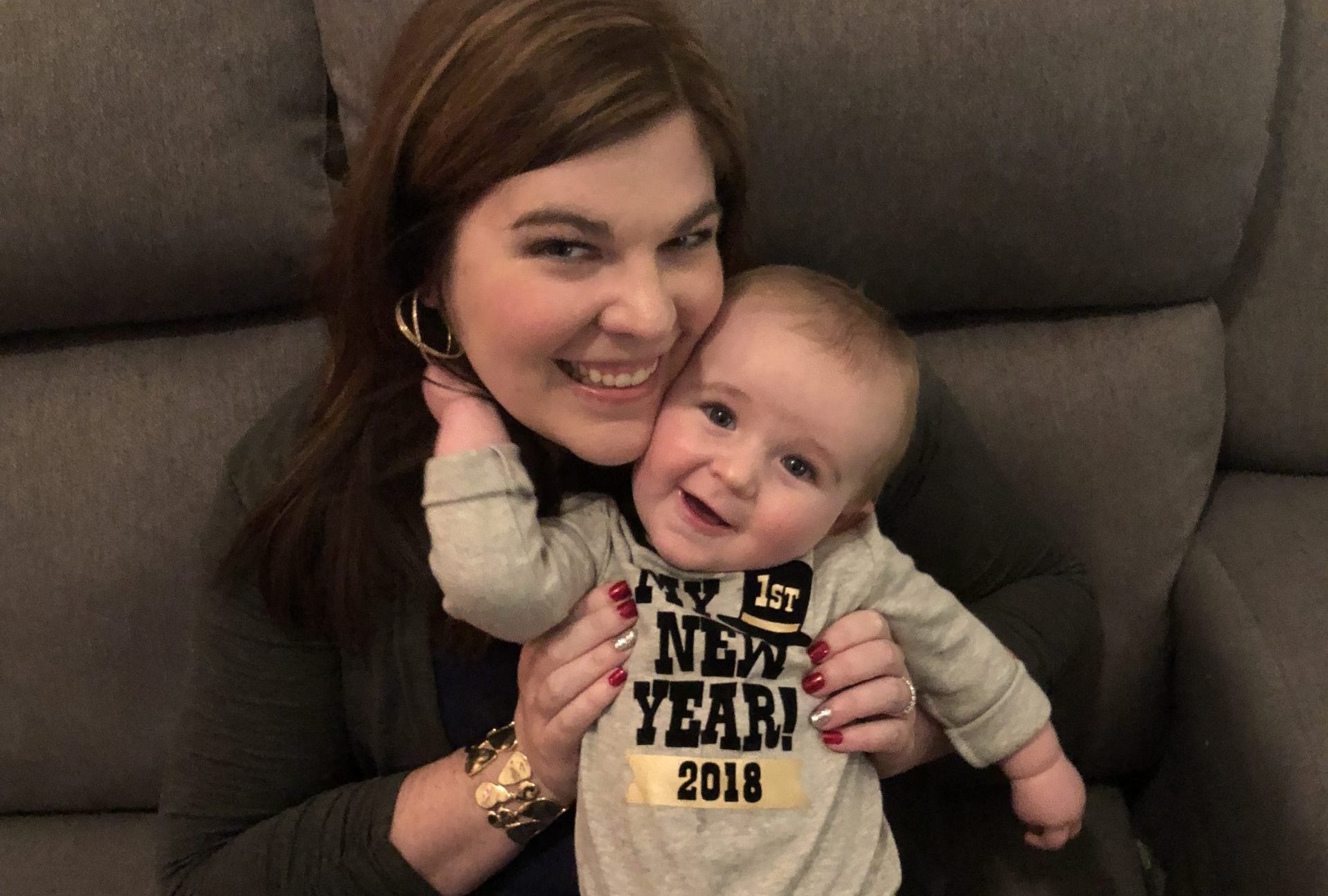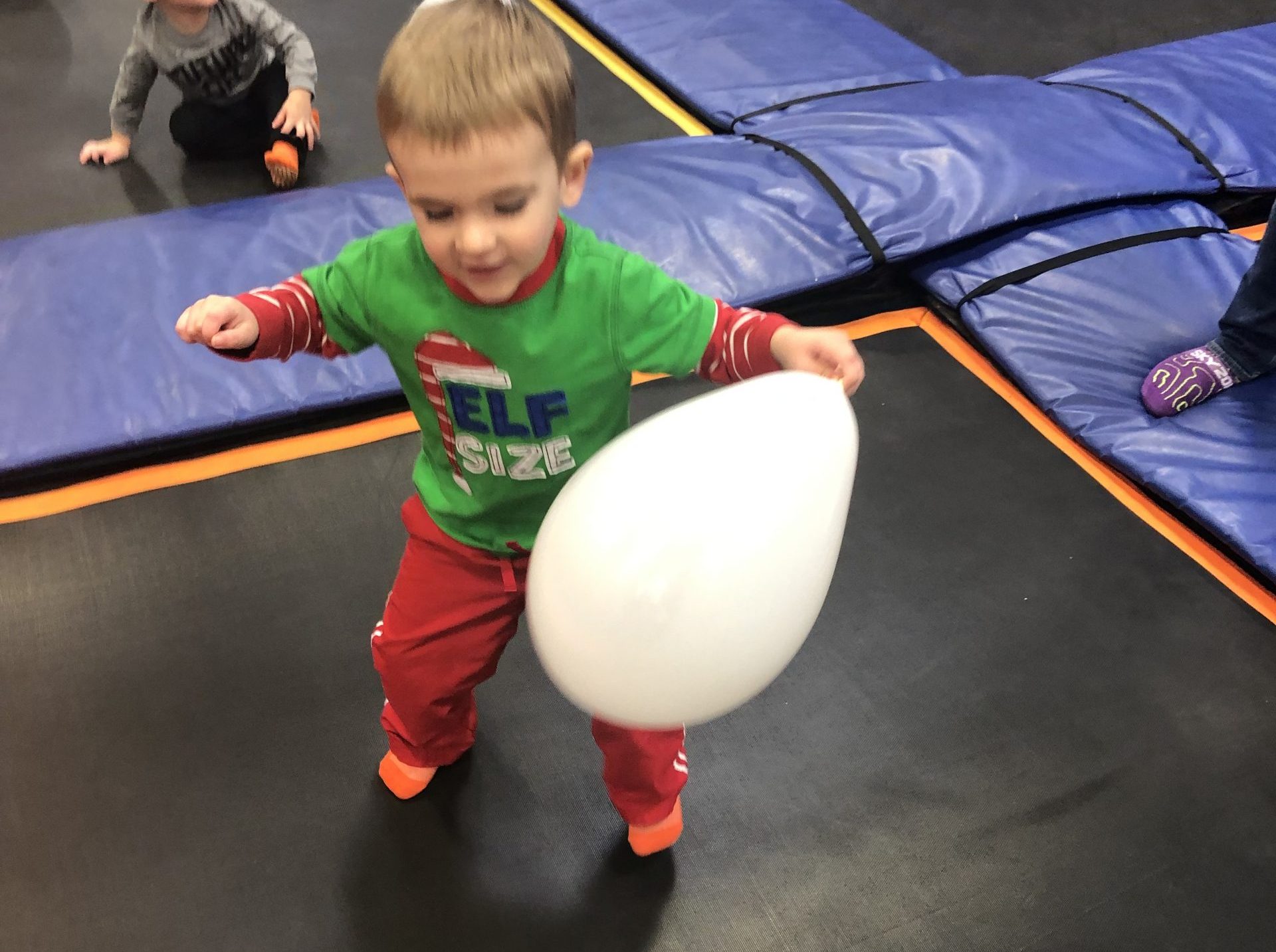“I can’t wait to see my kid struggle!” said no parent ever. We’d all be naive to think that struggles weren’t going to be a part of our child’s life; they’re a part of everyone’s life. But, when it’s your baby on the receiving end, it’s different. You want to be able to fix them. And sometimes, you just can’t. Muscling through my son’s hypotonia diagnosis for the past year has brought both of us humility, grit, and grace.
In short, hypotonia is low muscle tone. It’s not about the strength of the muscle, but rather the tension and control, or lack thereof. As with most things, there’s a wide spectrum. It can be a symptom of several medical conditions. There is no cure, but there are therapies to help. My son luckily has a mild form with no known cause, but it isn’t without its challenges.
The Strain to Reach Milestones
The word “milestones” makes me cringe. I know their purpose and why they exist. Believe me, I am like most moms watching the developmental progress and checking them off as they happen. There’s such a wide range, though. Every child is different. These were the facts followed by my first-time mom, zero clue, glass half full rationale before we had a hypotonia diagnosis:
- He hated tummy time. “Some babies just don’t like it!”
- His head tended to flop over to the left. “He just has a big head like his mama’s. And a skinny neck– definitely not like his mama’s. Besides, it doesn’t happen all the time!”
- He didn’t roll over until he was six months, crawl until 11 months, and walk until 18 months. “It’s still within the milestone range. He’s just on his own time!”
- He wasn’t saying much by 20 months. “Boys always seem later on language than girls.”
I lost count at the number of times I experienced a heavy heart when I witnessed one of my friend’s kids doing something my son couldn’t do yet. Yes, comparison is the thief of joy, but it’s easy to go there when milestones are just that– something to compare your child to.
How long do you sit and wait? When do you advocate? At the recommendation of our pediatrician, combined with a few “well below average” scores on the Ages and Stages Questionnaire, it was clearly time to advocate.
The Strength to Accept Help
I remember sitting in the evaluation room. The therapists went through several little exercises with him from walking up and down the stairs to stacking blocks to kicking a ball. Some things he could do. Many things he couldn’t.
After tallying the scores and consulting their notes, they confidently said that he exhibited several signs of hypotonia as well as global development delay. The dam in my eyes broke immediately. Wait, what is hypotonia? How’d he get it? Will he grow out of it? Should I have brought him in sooner? I didn’t do enough tummy time with him, did I? My mind was a car on the Indy 500 racetrack. I was assured that there was nothing I did or didn’t do. We were right where we needed to be at the right time of his life. His case was mild. Therapies would help. Resources were available.
I still walked out completely and utterly heartbroken for the angel smiling back at me in his carseat mirror. Buckle up, little man, because I’m not sure where this new road will lead us, I thought to myself.
The Exertion to Make Progress with Hypotonia

Our daily routine looks a little different than others. Bare feet don’t accompany his sweet, sleepy face down the stairs in the morning; his prescribed SMOs and house shoes do. (When you have to wear shoes at all times, you get a special pair, kindly nicknamed house shoes, that are just for, well, the house. We’ll pass on traipsing in with dirty shoes and germs.) Depending on what day of the week it is, we’re either off to speech, physical therapy, occupational therapy, school, or music class (pre-pandemic, of course).
He works hard every single day. I embrace all the things he CAN do, celebrate all he’s learning to do, and adjust for anything he can’t do. I will never, ever make my son feel that he is less than in any way. The progress he has made thus far is incredible. Last spring, he couldn’t jump at all. Not on a trampoline nor on the ground. This spring, we planned his third birthday at a jump park because he loves hopping so much! Last spring, he didn’t say much. Tonight he “read” one of his books to me. Last spring, he couldn’t throw a ball. Today, well, we’re still working on that.
We are fortunate to live in a wonderful community with a wide range of resources available to help. My son simply wouldn’t be where he is today without them. Here are a few we’ve used if your child might benefit as well:
- Help Me Grow
- Macomb Intermediate School District
- Macomb Infant Preschool Program
- Beaumont Hospital Pediatric Neurology
- Pros-Tech Prosthetics and Orthotics
The Energy to Overcome Obstacles
The tenacity of my favorite guy is so inspiring. The resilience he has demonstrated in his first few years of life is admirable to say the least. He takes his limitations in stride. He doesn’t dwell on what he can’t do. Does he get frustrated sometimes? Of course! Does he tire faster than other kids? Yes. Will certain things get harder once he’s older and understands more? I’m sure. But, he’s radiated an infectious sense of happiness since the day he was born that will carry him through.
When our 99th percentile in height, not-so-tiny miracle was born, my husband and I joked that our retirement would be coming from his career in the NBA. Those giant feet that settled into my rib cage for months would surely be laced up in Nike shoes in no time. Will he grow up to be that star athlete now? Probably not, but that’s ok. Maybe trampoline jumping will be an Olympic sport by then instead.
“Kites rise highest against the wind, not with it.” – Winston Churchill













This is so heartfelt and well-written. I suspect the information and resources you’ve included will help many moms out there identify, advocate and navigate for/with their child. I hope family members and friends who read it and think it might help someone they know, share it with them/their parents.
Thank you for sharing your story. I completely relate to this article. My youngest son, now 8, has hypotonia (not associated with a specific medical condition, familial trait). He didn’t walk until he was almost 2 with the help of SMOs. I remember when a mom in an exercise class looked at me with pitty when I said he couldn’t walk, yet, while all of the other kids his same age were running around. I didn’t go back. It took a long time to get a diagnosis. Seeing a pediatric geneticist was really helpful. Side Note- Trampoline is already an Olympic sport! It is fascinating and dizzying!